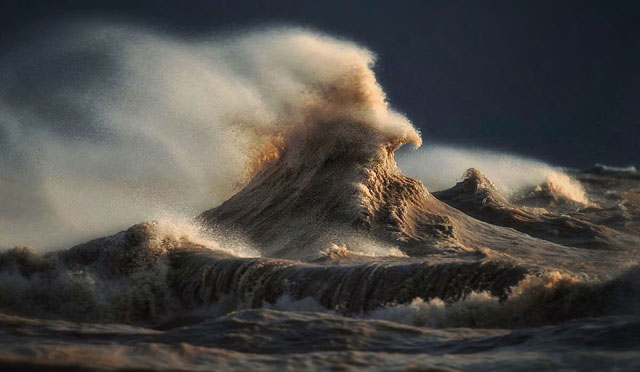These are interesting times for the expression of civil liberty. The tension between individual risk and personal responsibility and public safety and enforcement has always existed. The public health restrictions imposed during the coronavirus pandemic raised a furor over whether the government can really enforce such restrictions without public consent. In theory, public health laws and regulations define the authority of governments to restrict the freedoms of individuals, but absent enforcement, it’s up to the common sense and personal responsibility of individuals.
When it comes to water safety, especially in public beach areas where lifeguards are scarce this summer, public health authorities are in a quandary over how to ensure health and safety. Drownings have increased during the past couple summers in the Great Lakes, especially in areas exposed to west wind, creating rip tides, strong currents running from shore opposite breaking waves.
Michigan wants to ban swimming at state beaches during high wave conditions; specifically, “red flag” days, when wave height reaches three to five feet or higher. Red flags are posted on beaches. Currently, the flags are only a warning. That doesn’t stop many people from going into the water, and in some cases, becoming injured and die. As of June, there have been 34 drownings on the Great Lakes; 16 on Lake Michigan, six on Lake Huron, six on Lake Erie, and six on Lake Ontario, according to the Great Lakes Surf Rescue Project. Seems reasonable to prevent this. Just as beaches are closed when bacteria levels in the water create a risk for swimmers, they should be closed when wind and water conditions create a hazard. Of course, wind and waves create opportunity for surfers, so they’re not going to like that. But it gets deeper than that. The Michigan Department of Natural Resources says that people aren’t observing water safety measures and education provided by the department. Sounds like a similar situation with public health recommendations
Michigan United Conservation Clubs has transmitted its own red flag to members on social media, warning them about the proposal, which the organization believes is too oppressive. They fear that the DNR would prohibit wading in shallow water on a hot day or stop hunters from entering the water to retrieve a duck. It could also deter surfers. Perhaps more than any restriction on civil liberty, the DNR probably couldn’t enforce it anyway, they say. And they probably right.
It’s reminiscent of efforts by Michigan to enforce the governor’s mandates during the pandemic. Initially, support was generally strong and opposition restrained. But as the economic pressures weighed heavily on small businesses and rural communities that perceived themselves to be outside prime risk areas, people began to openly object to the state’s recommendations. Most notably is the barber from Owosso who refused to stop cutting hair. The state revoked his barber’s license, but he continued cutting hair. They could have shut him down, but didn’t. Similarly, several county sheriff’s departments refused to enforce the state’s restrictions. The governor’s opponents increased their opposition saying that people should be allowed to use common sense and personal responsibility in their behavior.
Depending on your thoughts on human nature, people are known to not use common sense or demonstrate personal responsibility in many occasions requiring it. In the case of a closed beach on a hot summer day, the likelihood that someone will want to go swimming is great. They will assume the risk, even if they don’t really consider it. After all, the percentage of people who are harmed by the water is very small. Like the risk of contracting a serious coronavirus infection.
Post by Dennis Archambault
Photograph by Dave Sandford
